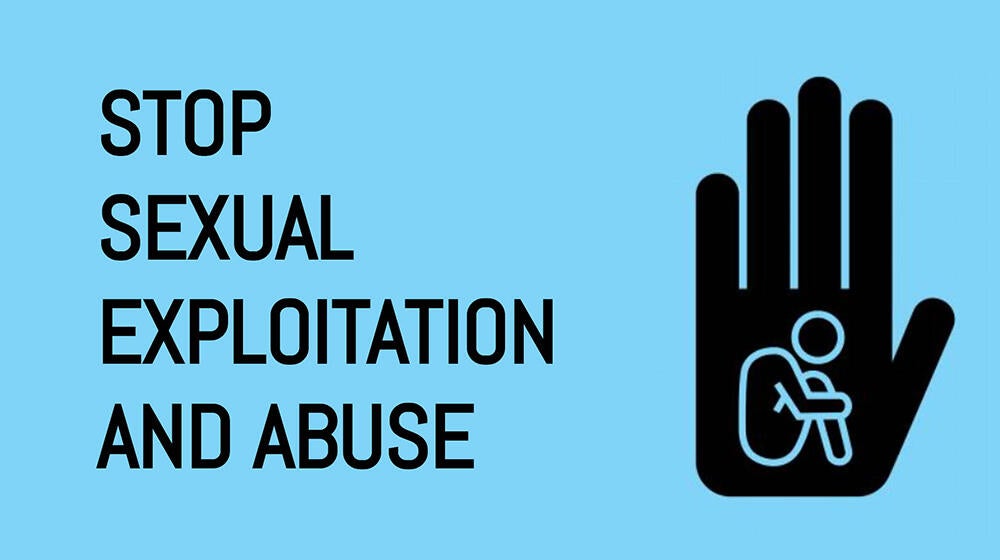(Version française: https://cameroon.unfpa.org/en/news/protection-contre-lexploitation-et-l… )
UNFPA has zero tolerance for all forms of sexual wrongdoing, whether perpetrated against a recipient of assistance or a coworker. Sexual exploitation and abuse violate human rights and are a betrayal of the core values of the United Nations. In the write up below, you will find more information on SEA, how UNFPA prevents, responds and eases reporting for Implementing Partners, beneficiaries or UNFPA staff. This can be found in the following segments:
What is Sexual Exploitation and Abuse?
According to the U.N. Secretary-General’s Bulletin on Protection from Sexual Exploitation and Abuse, sexual exploitation refers to “any actual or attempted abuse of a position of vulnerability, differential power, or trust, for sexual purposes, including, but not limited to, profiting monetarily, socially or politically from the sexual exploitation of another.” On the other hand, Sexual abuse refers to “actual or threatened physical intrusion of a sexual nature, whether by force or under unequal or coercive conditions.”
Sexual exploitation and abuse (SEA) occurs when people in power exploit or abuse vulnerable populations for sexual purposes.
What is retaliation?
According to UNFPA’s policy on prevention of and protection against retaliation, retaliation is any direct or indirect detrimental action recommended, threatened or taken because an individual reported wrongdoing in good faith or cooperated with an authorized fact-finding activity. When established, retaliation constitutes wrongdoing.
What is UNFPA’s Response to Prevent Sexual Exploitation and Abuse?
UNFPA’s vision is to cultivate an organizational culture of care that nurtures a safe, trusted, respectful and inclusive environment, where the rights and dignity of UNFPA personnel and the people and communities we serve are recognized, promoted and protected, and all feel empowered to speak up for themselves and others and take appropriate action to prevent and respond to any and all SEA.
The interests and dignity of those affected guide UNFPA’s approach to prevention, response and assistance.
UNFPA personnel are obligated to report allegations of sexual exploitation and abuse to the Office of Audit and Investigation Services through the confidential reporting tools available here, including an online reporting form available in five of the official UN languages.
How does UNFPA Prevent Sexual Exploitation and Abuse?
- UNFPA conducts rigorous pre-employment checks of staff and personnel. The organisation uses the UN system-wide database ‘Clear-check’ to prevent re/hiring of individuals with a record of SEA,
- All UNFPA personnel are required to undergo mandatory training on PSEA and those with additional responsibilities, such as managers and PSEA focal points receive dedicated training,
- UNFPA does not partner with entities that fail to appropriately address sexual exploitation and abuse and sexual harassment.
To this end, prohibition of SEA forms part of UNFPA’s cooperative arrangements with individual contractors, service contract holders and implementing partners. As UNFPA operates mainly through implementing partners, recent efforts have focused on ensuring that implementing partners have adequate capacities to prevent, respond and provide assistance. To this end, UNFPA has fully operationalized the United Nations Protocol on Allegations of Sexual Exploitation and Abuse Involving Implementing Partners and launched, jointly with other UN partners, a harmonized assessment tool to assess, build and monitor partners’ PSEA capacity.
How to Report cases of SEA.
To report any cases of Sexual Exploitation and Abuse, here are some useful addresses:
- For UNFPA Cameroon, contact : report-psea-cmr@unfpa.
org
Report to UNFPA Headquarters through the following addresses:
- To the Dedicated Investigation hotline email address : investigationshotline@unfpa.org
- By Physical mail marked as “Confidential” to the Director:
UNFPA Office of Audit and Investigation Services (OAIS)
for the attention of the Director, OAIS
605 Third Avenue
New York, NY 10158, USA
- To the dedicated OAIS fax at +1 (212) 297 4938
- By telephone to the OAIS-dedicated voicemail at +1 (212) 297 5200
How to Report cases of retaliation.
To report cases of retaliation. Use the following addresses:
- By email to Ethics.office@unfpa.org
- By mail marked as “Confidential” to the Ethics Advisor.
«Let's all be champions of protection and place the rights and dignity of victims and survivors at the heart of our efforts.”
— Dr. Natalia Kanem, UNFPA Executive Director.


